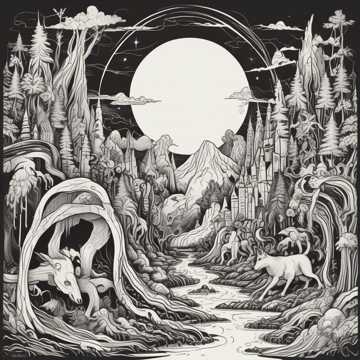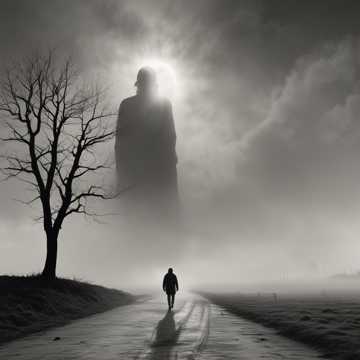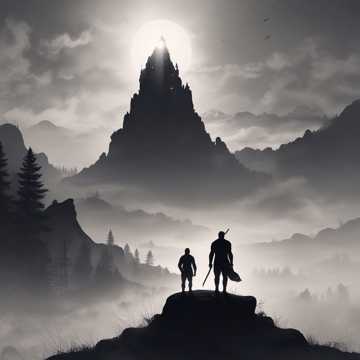[Intro]
A life free of calamity
(Catastrophe free)
Not free catastrophe
(Oh, save me… calamity free)
[Verse 1]
Frequency and intensity
(Gets the best of me)
Getting hit hard
(Again and again)
When can we let down our guard?
[Chorus]
A life free of calamity
(Catastrophe free)
Not free catastrophe
(Oh, save me… calamity free)
[Bridge]
Or is that scene
Just a dream
[Verse 2]
Hit faster. Hit harder.
(Really testing me)
Plain as day to see
(Over and over)
Not trying to be a martyr
[Chorus]
A life free of calamity
(Catastrophe free)
Not free catastrophe
(Oh, save me… calamity free)
[Bridge]
[Instrumental, Saxophone Solo]
Or is that scene
Just a dream
[Chorus]
A life free of calamity
(Catastrophe free)
Not free catastrophe
(Oh, save me… calamity free)
[Outro]
Or is that scene
Just a dream
A SCIENCE NOTE
If you’re wondering why rain-related severe weather events are becoming more frequent and intense, it’s due to climate change. Rising temperatures increase the amount of humidity in the atmosphere, as warmer air holds more moisture. The Clausius-Clapeyron equation shows that for every 1°C (1.8°F) increase in temperature, the air can hold about 7% more water vapor.
Many areas in the U.S. are experiencing average temperature increases of up to 10°C, extending over more weeks during both spring and fall. This increase allows the atmosphere to hold about 70% more water vapor, leading to significantly more rainfall. Additionally, raindrops are becoming larger and falling faster, which increases their momentum. Using the formula p=mv (momentum = mass x velocity), larger and faster raindrops carry more energy.
Moreover, the number of raindrops is also increasing. A higher concentration of raindrops in a given time and area further boosts momentum. For example, if N raindrops, each with mass m and velocity v, hit a surface area A per second, the total momentum impacting the surface is Nmv per second. This contributes to increased force and damage during rainstorms.
The end result is an increase not only in the frequency and intensity of storms but also in the momentum of falling rain, which intensifies their impact.
Violent Rain
What turns these severe weather events into ‘violent rain events’ is the application of the drag equation and flow dynamics.
Mass and velocity are just part of the equation; density also plays a key role. The combination of these variables increases the intensity of flow forces. Wind and water forces scale with the square of velocity, meaning that as flow speeds increase — due to more intense heating or heavier rainfall — the damage scales accordingly. According to drag physics, force is proportional to density times the square of velocity.
For example, a 20-mile-an-hour wind exerts four times the force of a 10-mile-an-hour wind, while a 40-mile-an-hour wind exerts 16 times the force of a 10-mile-an-hour wind. At 50 miles an hour, the force is 25 times greater, and at 60 miles an hour, it’s 36 times greater than at 10 miles an hour. Now, add the density factor: water is about 800 times denser than air, so a 10-mile-an-hour water flow exerts 800 times the force of a 10-mile-an-hour wind.
As flow velocities increase due to climate change, the forces — and thus the damage — scale with the square of the velocities. While we may not know precisely how much velocities will rise with climate change, we’re already seeing the effects: overwhelmed flood and sewage systems, collapsing hillsides, and more.
ALSO SEE:
The Reign of Violent Rain / Brouse and Mukherjee (2023-2024)
Violent Raindrops: Raindrops Are Increasing in Size / Brouse and Mukherjee (2024)
How is All Real Estate at Risk From Climate Change? / Brouse and Mukherjee (2024)




